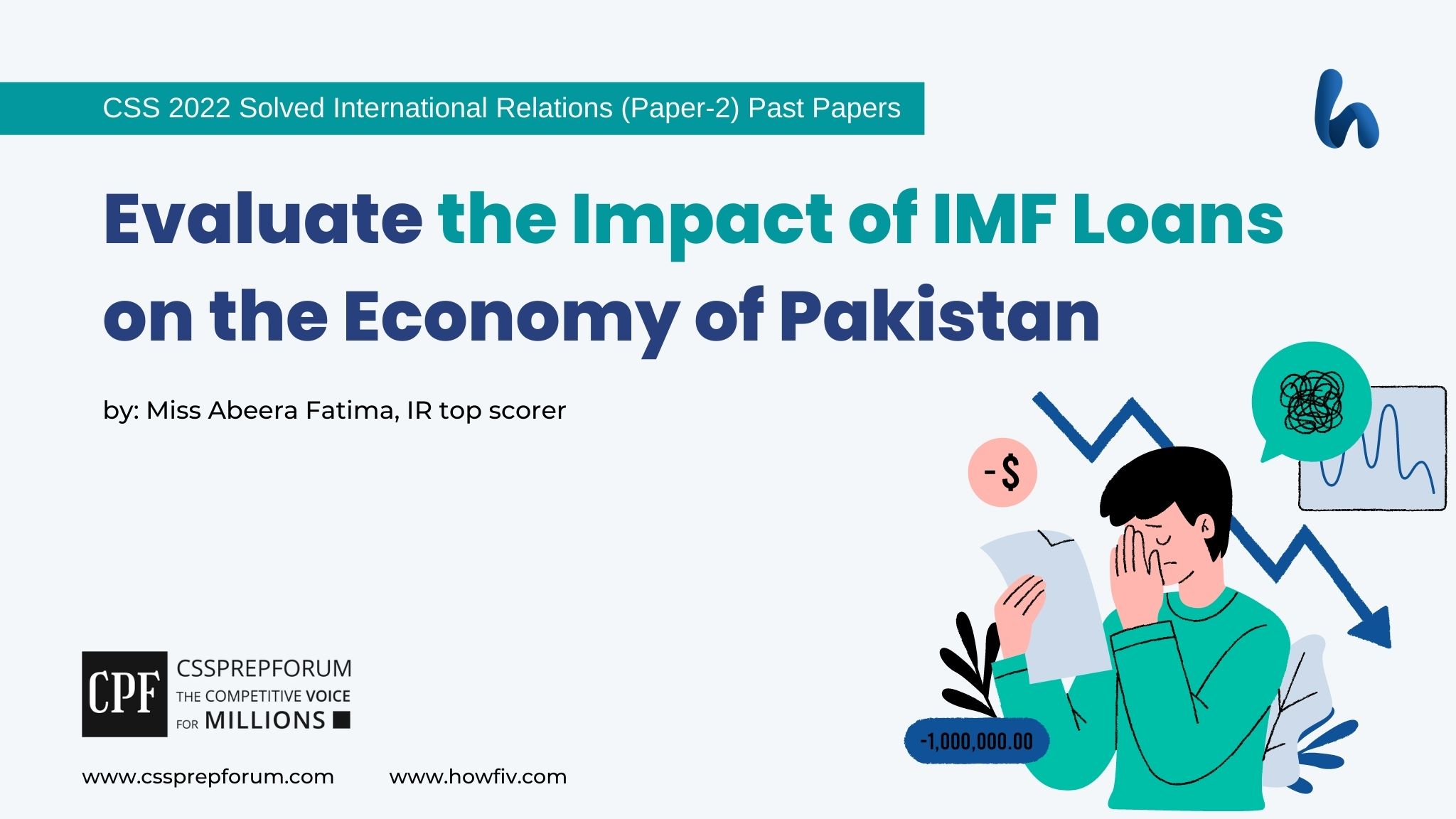Q6. Evaluate the impact of IMF loans on the economy of Pakistan. 2022

The impact of International Monetary Fund (IMF) loans on the economy of Pakistan has been a subject of debate and analysis. The IMF provides financial assistance to countries facing balance of payment crises or economic challenges, typically in exchange for implementing economic reforms and policy adjustments. Here are some key points to consider when evaluating the impact of IMF loans on Pakistan’s economy:
- Economic Stabilization: IMF loans have played a significant role in stabilizing Pakistan’s economy during times of crisis. The loans provide much-needed external financing, helping address balance of payment issues, stabilize the currency, and restore confidence in the economy. They have helped prevent or mitigate financial crises, particularly during periods of severe macroeconomic imbalances.
- Conditionalities and Structural Reforms: IMF loans are accompanied by policy conditions and structural reforms that aim to address the underlying economic vulnerabilities. These conditions typically involve measures such as fiscal consolidation, tax reforms, subsidy reductions, exchange rate adjustments, and improvements in governance and transparency. The implementation of these reforms is intended to enhance economic stability, fiscal discipline, and the overall efficiency of the economy.
- Fiscal and Monetary Discipline: IMF programs often require countries to adopt strict fiscal and monetary policies to address fiscal imbalances and inflation. This can involve reducing government expenditure, increasing revenue generation, and implementing monetary tightening measures. The focus on fiscal and monetary discipline can contribute to macroeconomic stability, reduce inflationary pressures, and create a favorable environment for sustainable economic growth.
- Economic Challenges and Social Impacts: Implementing IMF-prescribed reforms and conditionalities can be challenging and may have short-term adverse effects on the economy. The reforms can lead to austerity measures, reduction in public spending, and job losses, which can impact certain sectors of the economy and cause social hardships. The adjustment measures can also widen income disparities and exacerbate poverty, particularly if social safety nets are not adequately addressed.
- Investor Confidence and Market Access: IMF programs can help improve investor confidence and restore market access for the borrowing country. By demonstrating commitment to implementing reforms and addressing economic vulnerabilities, Pakistan has been able to attract foreign investment, access international capital markets, and improve its creditworthiness. This can contribute to long-term economic growth and development.
- Debt Sustainability and External Dependency: One concern often raised is the potential long-term impact of IMF loans on a country’s debt sustainability and external dependency. While IMF loans provide short-term relief, they may add to a country’s overall debt burden, and the repayment obligations can create future challenges. Additionally, reliance on IMF loans may contribute to a perception of external dependency and limit policy autonomy in the long run.
It is important to note that the impact of IMF loans on Pakistan’s economy is complex and multifaceted, and its evaluation can vary depending on the specific circumstances, policy implementation, and broader economic factors. While IMF loans have helped stabilize the economy and address immediate challenges, the effectiveness and long-term impact depend on the country’s ability to implement necessary reforms, manage social implications, and pursue sustainable economic growth strategies beyond the period of IMF assistance.